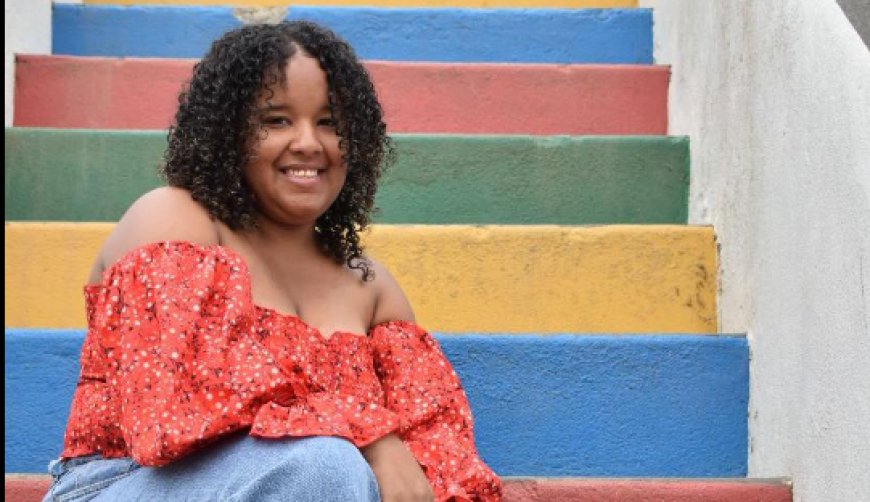I visited the island two years ago. I had been warned: Brava is a place where time stands still, where days are not measured, where haste is an offense and urgency a whim. Everything there seems suspended, as if the world itself had decided to stop for a moment and stay. A still and stubborn time, which refuses to obey the clock or the advice of the international system of some immaculate god.
I went for work. A literary event, a whole week of visits to state institutions and, in the middle of it all, the school. The high school. The room was full of students with questioning eyes and a thirst that cannot be quenched with books or promises. They wanted to know about literature, about what it means to write, about what is worth saying before death interrupts us. "I write so I don't die," says the old saying. "I write so I don't go crazy," adds Anilton Levy. But what made my day was a student who stood up and recited a poem about the island.
She spoke of Brava as if she were talking about an old and indomitable love. Of a place where one does not leave, but rather exhausts oneself. Of the desire to reach America, not like the Cubans or the Mexicans, fleeing. But like someone who leaves by destiny, by fate. In her poem, those who leave take the flowers, the scents and the memories with them. I wondered if these people have already doubled their struggles to the point of exhaustion, or if they still double their dreams, stretching them to the last hope.
Eugénio Tavares knew this. He sang about the island in mornas and verses that intertwine longing, women, love and the ill-fated destiny of a people. Here, even the trees dance with the wind and, one day, fall. Like us. Like dry leaves. Perhaps that is why his work should be called Fallen Leaves.
The sea that separates Brava from the rest of the world has its reasons for being angry. It thinks people should stay. But they insist on leaving. So it rebels. The waves turn the boat into a toy and those who cross those waters no longer need mass or a witch: there anyone can see their demon before death. The heart beats erratically, the stomach turns and the food brought from the city of Praia is grateful for the instability. Hands grab on wherever they can, sticking in like nails. Like the cold of the island that sleeps in the houses and in the leaves, and in the morning cries despair in clear drops. At other times, it is in any crack that prevents the fall.
And then, the arrival. Nova Sintra. Further down, the small boat, which is only small in name. The boat that transports the sick off the island. Because we are always running away from something. By force or by necessity. And Brava, sometimes, is a vanity. Being there.
And, in farewell, Dona Tututa, the one with the white ass, rises above the waters like a ghost. She watches over those who arrive. She greets those who leave. For those who come for the first time, the island of flowers appears whole, intense, proud. For those who return, Brava seems to look sideways, asking softly: “Again?”
The houses of Brava are reminiscent of Portuguese villages. But most are empty. Some resist, proud and ready to be inhabited. Others are shadows of themselves, black with abandonment. I remember a poem by Craveirinha:
"I'm tar, boss. I'm coal."
In Brava, the empty houses are not just houses. They are skeletons of memory. They are poems that the wind moans, like an ancient frost, like a kiss that never came.
It was there that I met a professor who crippled his desires in exchange for being stuck on those rocks. On the other side of the island, all you can hear is the ocean's rage crashing against the cliffs. In the heat of July, between silence and whispers, he confided in me:
— I was left behind. I have been the campus manager since I arrived here a decade ago. I have never met a minister who has come to this school. Give them a message when you arrive. Tell them that I have aborted my dreams in favor of the students who want to go to America and I have not left them. But the cinnamon of the ocean is much longer and more delicious, and the curves here are even more decorated, but always.
And there are the folds. Ninety-nine, they say. Built by the hands of men and God. But they are not enough. Ninety-nine curves do not prevent the island from emptying. They do not stop the demographic decline.
Brava. Name of an island. Name of a person.
Brava is the weapon that aggravates.
Author: Mario Loff
It came to our attention through Divah Burgo

